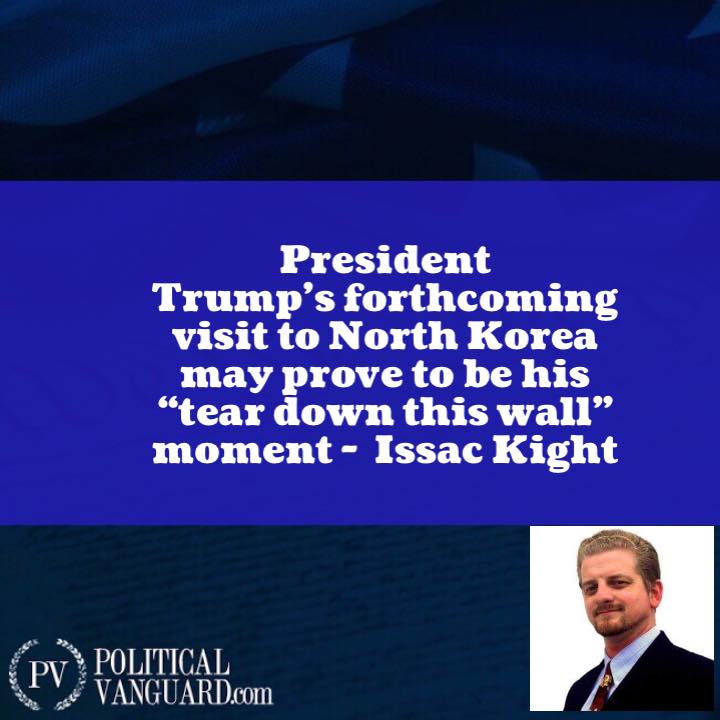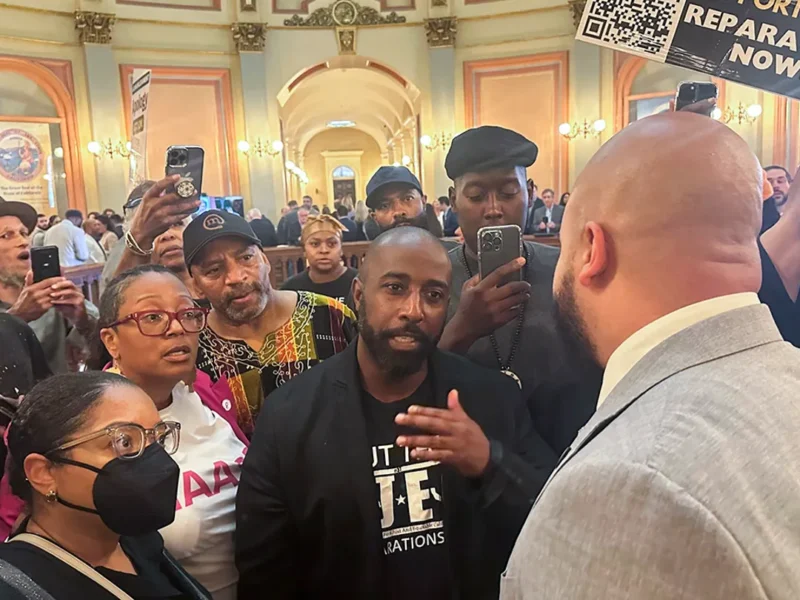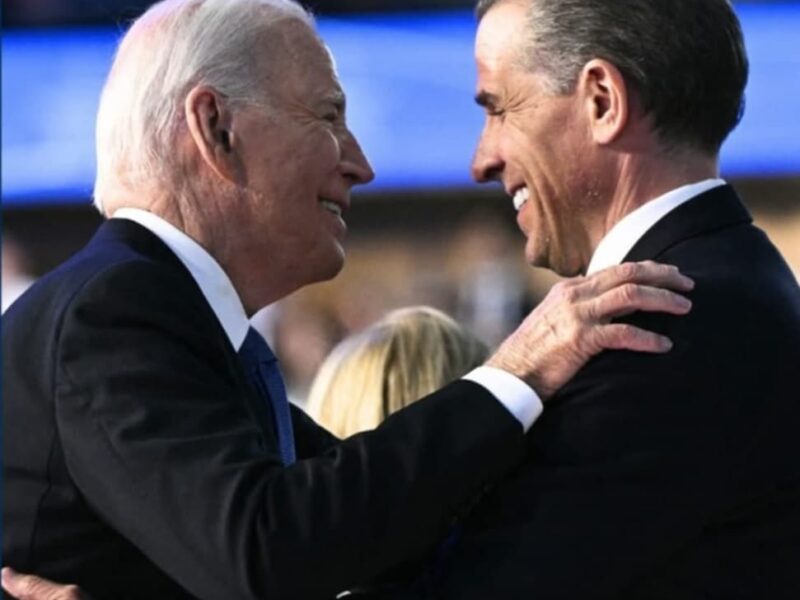The Historic End of the Korean War

Kim Jong Un and Moon Jae-In (AP)
In a historic moment for the Korean peninsula and the world, South Korean President Moon Jae-In and North Korean Dictator Kim Jong Un met at the Demilitarized Zone (DMZ). The two leaders shook hands, posed for a photo op, and proceeded to sign a joint statement that they intend to end the Korean War. President Moon credited US President Donald Trump for the opportunity to make a lasting peace on the Korean Peninsula. President Trump took a tough line on N Korea’s saber rattling last year. Far from relenting, he went so far as to belittle Kim Jong Un as “Little Rocket Man.” Jong Un was unable to make headway by means of N Korea’s long-standing policy of being a dangerous and unpredictable. Jong Un’s father Kim Jong Il, made great headway with this strategy convincing successive western leaders and US Presidents to appease him. This time, President Trump called Jong Un’s bluff and demonstrated an utter lack of fear of the rogue state and its failing rocket program. Facing imminent bankruptcy, N Korea is about to run out of hard currency for trade, Kim Jong Un has been driven to the negotiating table.
North Koreans are unimaginably poor and malnourished. If recent defectors are any example, many people suffer from parasites, infections, and treatable illnesses. Meanwhile, the Kim family has held tightly to the reins of power. North Korea’s first Communist dictator Kim Il Sung elevated himself to near g-dhood in his time. His son Kim Jong Il kept up the cult of personality. Kim Jong Un inherited a state that is largely bankrupt and has proceeded to spend liberally since then. The strategy of appearing dangerous and unpredictable is no longer earning concessions and appeasement from the West. When President Trump called out Kim Jong Un for his threats to world peace, the embarrassment to the very young leader was severe. This weakened Jong Un’s credibility and strength in international relations. China has historically protected N Korea, but with its economy far frailer than anyone wishes to admit, China is no longer cooperating with the rogue regime. North Korea is truly in a bind.
President Trump’s forthcoming visit to North Korea may prove to be his “tear down this wall” moment, echoing President Reagan’s famous address about the Berlin Wall before the Brandenburg Gate in 1987. The coming end of the Korean War is an accomplishment that has seen the President nominated for a Nobel Peace Prize. A major foreign policy success on the heels of a general success in defeating Islamic State in Syria. The success in Korea also comes as Iran is withdrawing from the “Iran Deal” a major posthumous failure for the previous administration.
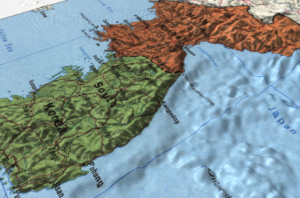
Are the North Koreans negotiating in good faith? While everyone remains suspicious of the regime’s motives, thus far they seem to be acting in good faith. Kim Jong Un has been willing to seek the war’s end without calling for preconditions: he has not demanded the withdrawal of the substantial US forces in South Korea, for example. Jong Un recently ordered the release of three US citizens whose detention has been a source of tension between N Korea and the US. The three were released from a labour camp and have been brought to Pyongyang for treatment and hopefully, quick release. If Kim Jong Un were bluffing or playing at some angle, this is not how one imagines he would go about it. The joint statement with the S Korean President promising an end to the Korean War is quite a commitment and a long way to go if the ultimate aim is to renege at the last minute.
What might result from an agreement with North Korea? If the Korean War is truly over, the DMZ dismantled, and US forces finally withdrawn from the peninsula? If this comes to pass, what a blessing it will prove for the people of the Korean Peninsula, the United States, and the world. This would open the door to a possible future withdrawal of US military forces from Japan as well. The cost savings to the United States would be appreciable. There has been talk of N Korea opening its borders to travel with the South, at least for now, to reunite families divided by the war. Could free transit soon be a reality? Jong Un has expressed an interest in direct investment in N Korea by the US and other prosperous western economies. If there is any means by which the people of N Korea can be fed, treated, and offered some hope for a better future, that path must be diligently pursued. Perhaps, in time, the North Korean Communist Regime will come to an end all together paving the way to a united and democratic Korea.
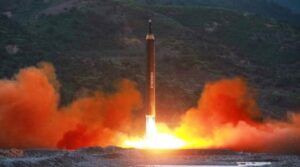
North Korean Rocket Test (North Korean State Media)
An Unforeseen Accomplishment
The Korean Peninsula did not figure prominently as an issue in the 2016 Presidential Election. Unlike the Middle East, which draws perpetual attention to itself, Korea has gone largely ignored for decades. President Trump took a bold and strong stand against North Korean threats, but remained open to “making a deal;” at which President Trump excelled as a former business tycoon. So far, North Korea has made several important concessions and has approached the South about ending the decades old conflict. The real negotiating, the real deal making, will begin soon. Could an agreement be reached between the North, South, and the United States? The gains for the Korean people in freedom from fear, prosperity, health, and in time greater political freedom in the North, cannot be counted in monetary terms. Hope springs eternal.




